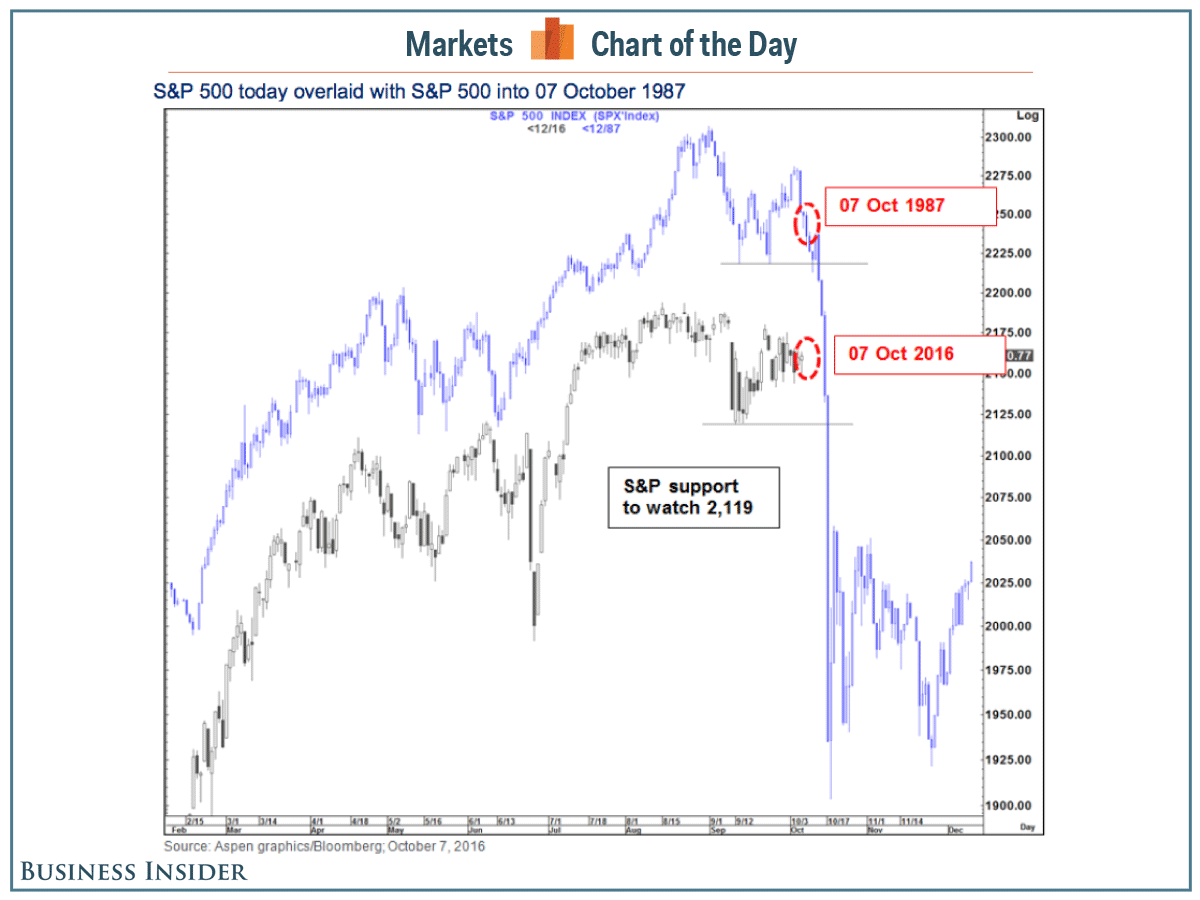Financial advisers and market strategists usually warn their clients that the market’s performance in the past is not a reliable guide for its future moves.
But when Citi’s Tom Fitzpatrick and his team overlaid the current chart of the benchmark S&P 500 with the index in 1987 – right before the crash – they got “the chills.”
On October 19, 1987, the Dow Jones Industrial Average suffered its biggest daily percentage loss, erasing 22.6% of its value. The S&P 500 also crashed.
Fitzpatrick is a top strategist at Citi and studies charts of trading patterns to forecast changes in the stock market.
Besides the similarity in the chart, Fitzpatrick cited four other reasons for his concern about the market right now.
He said in a note on Friday:
- There's heightened concern about Europe and its banks. The UK has set a March 2017 date for when it will begin legal proceedings to exit the European Union, and Deutsche Bank failed to reach a swift deal that would lower its $14 billion fine with US authorities. We're in "the most polarizing US presidential election in modern times." More reports are circulating about central banks in Japan and Europe removing some of the economic stimulus they've provided by tapering their bond purchases. This is raising concerns about the efficacy of central bank policy around the world, Fitzpatrick said. And finally, some peculiar market moves: a 16% move in oil prices within a week; a 20-basis-point shift in US 10-year yields in five days; and a $90 move in gold prices in nine days. The Chinese yuan and British pound have made massive moves in a short period of time, too.
Fitzpatrick said the support level to watch for the S&P 500 is 2,119. That's the critical floor below which traders are unlikely to allow the index to fall; if it breaks support, they'll be looking for a new floor.
On Monday, the S&P 500 opened at 2,165.05 and was up by 0.7% in early trading. It has gained 6% this year.

